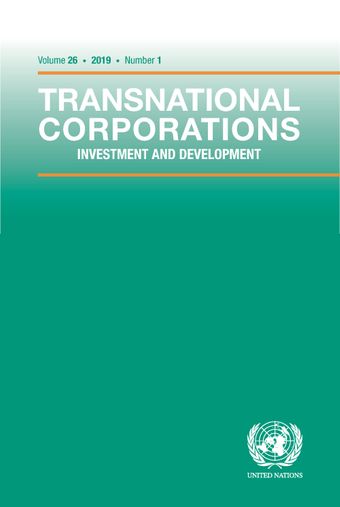-
Global value chains and the fragmentation of trade policy coalitions
- Source: Transnational Corporations, Volume 26, Issue 1, Jul 2019, p. 31 - 60
-
- 15 Jul 2019
Abstract
Recent decades have seen the emergence of global value chain (GVC) production arrangements in which firms fine-slice production processes and disperse activities over multiple countries. This paper analyses how the rise of GVCs affects trade politics in developed countries. Our theoretical model shows that GVCs drive a wedge between the interests of workers and of managers in unskilled-labourintensive industries, upsetting a traditional coalition that has favoured protectionism against competing imports. Managers of GVC firms switch towards favouring trade promotion since they can substitute foreign for local unskilled workers. The loss of their management ally further weakens the position of low-skilled workers, whose jobs and income are threatened by foreign competition. This new trend may help to explain the recent surge in anti-trade sentiment, while indicating the importance of an active policy response to deal with the economic challenges for affected





